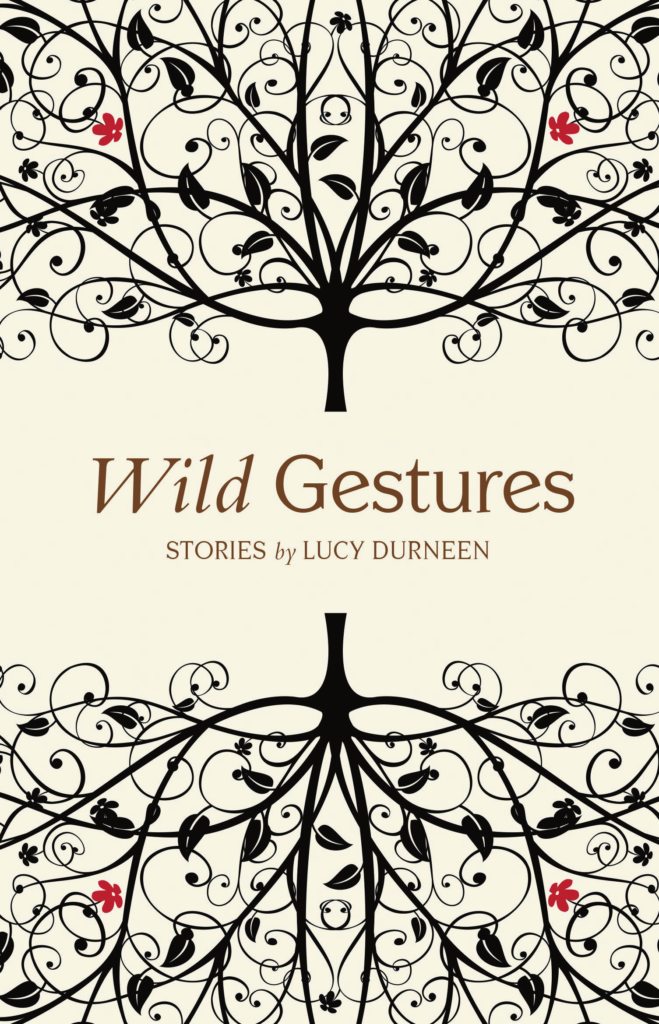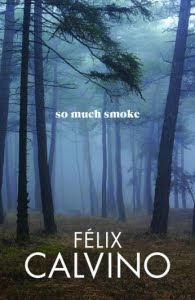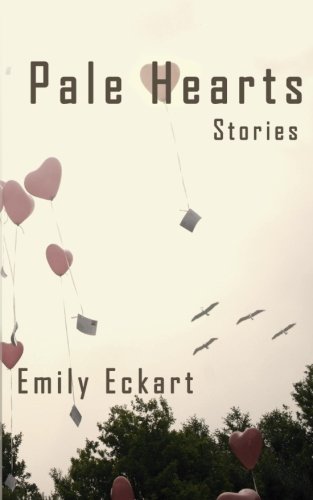 The book is wonderfully informed by multiple metaphorical depictions of our inner and outer struggles. Young Marcus loses his mother, his only parent, and goes to live with his eccentric and spiritually bruised great Aunt Charlotte on a small island in South Carolina at the beginning of the summer. Aunt Charlotte has past wounds that haunt her, rendering her a reclusive but renowned local painter.
The book is wonderfully informed by multiple metaphorical depictions of our inner and outer struggles. Young Marcus loses his mother, his only parent, and goes to live with his eccentric and spiritually bruised great Aunt Charlotte on a small island in South Carolina at the beginning of the summer. Aunt Charlotte has past wounds that haunt her, rendering her a reclusive but renowned local painter.
Tag: fiction
A review of An Accidental Profession by Daniel S. Jones
 Undoubtedly, it’s rather nice to think that others are toiling away while we read about them, and the similarities and differences with our own working lives emerge with unusual clarity: occupations do not have to be exotic or abstruse for us to find them fascinating. An Accidental Profession is all about work: its organization and administration, what it does to people, the power of the corporation, our ambivalent relationships with our co-workers.
Undoubtedly, it’s rather nice to think that others are toiling away while we read about them, and the similarities and differences with our own working lives emerge with unusual clarity: occupations do not have to be exotic or abstruse for us to find them fascinating. An Accidental Profession is all about work: its organization and administration, what it does to people, the power of the corporation, our ambivalent relationships with our co-workers.
A review of Peregrine Island by Diane B. Saxton
 Weather plays a profound role in the novel; it is almost a character. Fog, dark clouds and storms set a mood, suggesting that the Peregrines are subject to forces beyond their control. Young Peda, the family member most in tune with nature, has a strong need for friendship and a belief in magic that lead to a positive outcome for her family members.
Weather plays a profound role in the novel; it is almost a character. Fog, dark clouds and storms set a mood, suggesting that the Peregrines are subject to forces beyond their control. Young Peda, the family member most in tune with nature, has a strong need for friendship and a belief in magic that lead to a positive outcome for her family members.
A review of Something You Once Told Me by Barry Stewart Hunter
 Trains and boats and planes – modes of transport abound in Barry Stewart Hunter’s interestingly varied collection of short stories, although the people they convey are seldom up to speed with their own lives. Persons in transit and the mental dislocations they experience are a recurring motif; thematically, however, there is a great deal more going on, much of which is intriguingly elusive.
Trains and boats and planes – modes of transport abound in Barry Stewart Hunter’s interestingly varied collection of short stories, although the people they convey are seldom up to speed with their own lives. Persons in transit and the mental dislocations they experience are a recurring motif; thematically, however, there is a great deal more going on, much of which is intriguingly elusive.
A review of Wild Gestures by Lucy Durneen
 The language is silky and seductive and as a reader I was drawn in, drifting about like a leaf in a stream taking in sights, sounds and feelings. Lucy Durneen leaves the door open to her mind and as the pages pass I’m looking out of her eyes focusing and feeling the world as she describes and experiences it.
The language is silky and seductive and as a reader I was drawn in, drifting about like a leaf in a stream taking in sights, sounds and feelings. Lucy Durneen leaves the door open to her mind and as the pages pass I’m looking out of her eyes focusing and feeling the world as she describes and experiences it.
A review of Goodwood by Holly Throsby
 Goodwood doesn’t pursue the path of a traditional mystery novel and those looking for a heart–racing style whodunnit built around the two disappearances might be disappointed. The shock of those events is a catalyst here for deeper explorations of what lurks below the surface and how we create meaning in our lives in this tender, rich, and deeply enjoyable book.
Goodwood doesn’t pursue the path of a traditional mystery novel and those looking for a heart–racing style whodunnit built around the two disappearances might be disappointed. The shock of those events is a catalyst here for deeper explorations of what lurks below the surface and how we create meaning in our lives in this tender, rich, and deeply enjoyable book.
A review of So Much Smoke by Felix Calvino
 Always there’s a sense that the world is not quite fixed and that what we’re experiencing is illusory (so much smoke), and charged by scars, memories, hunger, and all that we’ve lost. The stories that make up So Much Smoke are powerful, not so much because of what happens, but because of the way they hint at how much lurks below the surface
Always there’s a sense that the world is not quite fixed and that what we’re experiencing is illusory (so much smoke), and charged by scars, memories, hunger, and all that we’ve lost. The stories that make up So Much Smoke are powerful, not so much because of what happens, but because of the way they hint at how much lurks below the surface
A review of Pale Hearts by Emily Eckart
 Emily Eckart’s debut short story collection, is unique and outstanding first and foremost for her literary craftswomanship. In “The Beech Tree”, the first story in the collection, she skilfully uses the imagery of trees, fruit and flowers in showing an unhappy girl’s relationship with her grandmother. More than just a detail of setting, the tree symbolizes the love between Grandma and her late husband, which flourished, grew large and endured.
Emily Eckart’s debut short story collection, is unique and outstanding first and foremost for her literary craftswomanship. In “The Beech Tree”, the first story in the collection, she skilfully uses the imagery of trees, fruit and flowers in showing an unhappy girl’s relationship with her grandmother. More than just a detail of setting, the tree symbolizes the love between Grandma and her late husband, which flourished, grew large and endured.
A review of Little Nothing by Marisa Silver
 With these recurring themes and patterns of place, Silver establishes an internal logic to a book that otherwise often appears random and almost too wondrous. But because of her skill with both description and with the larger structure of the work itself, Silver is able to craft a coherent narrative that works both as a fairytale and a question. Little Nothing leaves a reader both entertained and puzzled; like a work of art should,
With these recurring themes and patterns of place, Silver establishes an internal logic to a book that otherwise often appears random and almost too wondrous. But because of her skill with both description and with the larger structure of the work itself, Silver is able to craft a coherent narrative that works both as a fairytale and a question. Little Nothing leaves a reader both entertained and puzzled; like a work of art should,
A review of The Joyce Girl by Annabel Abbs
 From the beginning to the end The Joyce Girl is an enchanting tale, beautifully written. It drew me in and wouldn’t let go; I was caught and trapped right up to the epilogue. And what a cast of characters … their names kept dropping from this book like exotic fruits, starting with James Augustine Aloysius Joyce, Samuel Beckett, Madam Egorova, Alexander Calder, Nijinsky, Scott Fitzgerald, Zelda Fitzgerald, Stella Steyn, Thomas McGreevy, Pablo Picasso, Dr Carl Gustav Jung, Gertrude Stein, Margaret Morris, John O’Sullivan, Isadora Duncan, and Stirling Calder all get a mention.
From the beginning to the end The Joyce Girl is an enchanting tale, beautifully written. It drew me in and wouldn’t let go; I was caught and trapped right up to the epilogue. And what a cast of characters … their names kept dropping from this book like exotic fruits, starting with James Augustine Aloysius Joyce, Samuel Beckett, Madam Egorova, Alexander Calder, Nijinsky, Scott Fitzgerald, Zelda Fitzgerald, Stella Steyn, Thomas McGreevy, Pablo Picasso, Dr Carl Gustav Jung, Gertrude Stein, Margaret Morris, John O’Sullivan, Isadora Duncan, and Stirling Calder all get a mention.